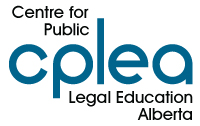Abuse is when someone harms another. It is against the law in Canada.
Abuse or violence can occur in any family. It can happen to anyone regardless of gender, age, income level, or ethnic background. Abuse can occur in any relationship, including a marriage, same-sex or dating relationship. The harm can be psychological, physical, sexual, financial, neglect, digital or online abuse, and more. It can be one instance or a pattern over time.
If you are experiencing abuse, know that:
- abuse is NOT okay
- you are NOT to blame
- you are NOT the only one experiencing abuse
- both men and women can experience abuse
Warning Signs of Abuse | Psychological Abuse & Coercive Control | Physical Abuse | Sexual Abuse | Financial Abuse | Neglect | Digital or Online Abuse
Warning Signs of Abuse
There are many warning signs of abuse, depending on the situation. Some common warning signs are a partner who:
- is extremely jealous
- wants to know where you are always
- gets upset if you spend time with friends or family
- has strict expectations of gender or family roles
- expects you to meet their emotional needs
- blames you and others for their problems
- threatens you with violence
- isolates you from family and friends
TIP | Call the Family Violence Info Line at 310.1818 if you want more information or to talk to someone about your situation.
Abuse does not look the same for everyone.
Alex was in a relationship with Sam for 10 years. At first, Alex thought Sam was just jealous – a sign they loved Alex. Soon, Sam started going through Alex’s social media accounts and using them to keep track of where Alex was. And Sam only hit Alex once while they were dating. But Sam became more abusive and violence after Alex got pregnant. Now Alex realizes that Sam was abusive.
Aman immigrated to Canada when her husband sponsored her visa. She relied on him for everything. But he hit her, made fun of her English, refused to give her money and stopped her from contacting her family back home. She was worried she would lose her immigration status and her children if she left her husband. Then she learned about her options through an agency that helps immigrant women in Canada.
Psychological Abuse & Coercive Control
Psychological abuse includes:
- controlling behaviour, such as bullying, humiliating, threatening, yelling, blaming, shaming, ridiculing, disrespecting or criticizing you
- controlling what you can or cannot do
- threatening to commit suicide
- threatening to injure or kill someone
- threatening to hurt or take away your children
- using person beliefs (such as the abuser’s interpretation of religious or cultural beliefs) to manipulate, dominate or control you
Coercive control is an ongoing pattern of threats, force, emotional abuse and other ways to control a person and get them to submit and comply. It is often part of family violence and can be more dangerous than other forms of abuse. The person using coercive control usually limits the victim’s freedom and micromanages their daily life. Because the controller is usually very good at creating positive perceptions of themselves, coercive control can be hard to prove. Read the article titled “The Divorce Act and Invisible Abuse: Coercive control in family law” to learn more.
Physical Abuse
Physical abuse includes:
- hitting, punching, slapping, choking, burning, pushing, shoving or any other forceful physical act you do not consent to
- confining you or not letting you contact friends or family
- forcing you to take drugs or drink alcohol or do something illegal
Sexual Abuse
Sexual abuse includes:
- any sexual activity that you do not consent to
- forcing or threatening you to do something sexual that you do not want to do
- using physical force, weapons or objects in sexual acts without your consent
- involving other people in sexual acts without your consent
- involving or suggesting involving in sexual activity a child or someone who cannot give consent (such as someone who is ill, drunk, high on drugs, being intimidated or pressured)
In any relationship, including a marriage, Canadian law says you must voluntarily consent to each sexual activity. Read our Sexual Violence and the Law series of info sheets to learn more.
Financial Abuse
Financial abuse includes:
- keeping you financially dependent on the abuser
- stealing your money
- controlling your finances or refusing to share money
- not allowing you to work or go to school
- causing you to lose your job (such as by making you miss work)
Neglect
Neglect means not providing things needed to survive, such as food, clothing, medical care, or shelter. It can also include causing a risk of serious harm by not doing something.
Digital or Online Abuse
Digital abuse or online abuse means using technology to harass and intimidate, including:
- constantly texting and getting angry if you do not respond to texts right away
- stealing or demanding passwords to email and social media accounts
- monitoring your activity through social media
- posting mean or threatening statuses about you online
- demanding explicit pictures of you
It can also include posting intimate images of you online without your consent. This is a criminal offence under Canada’s Criminal Code. Read our Sharing Intimate Images Without Consent info sheet to learn more.



